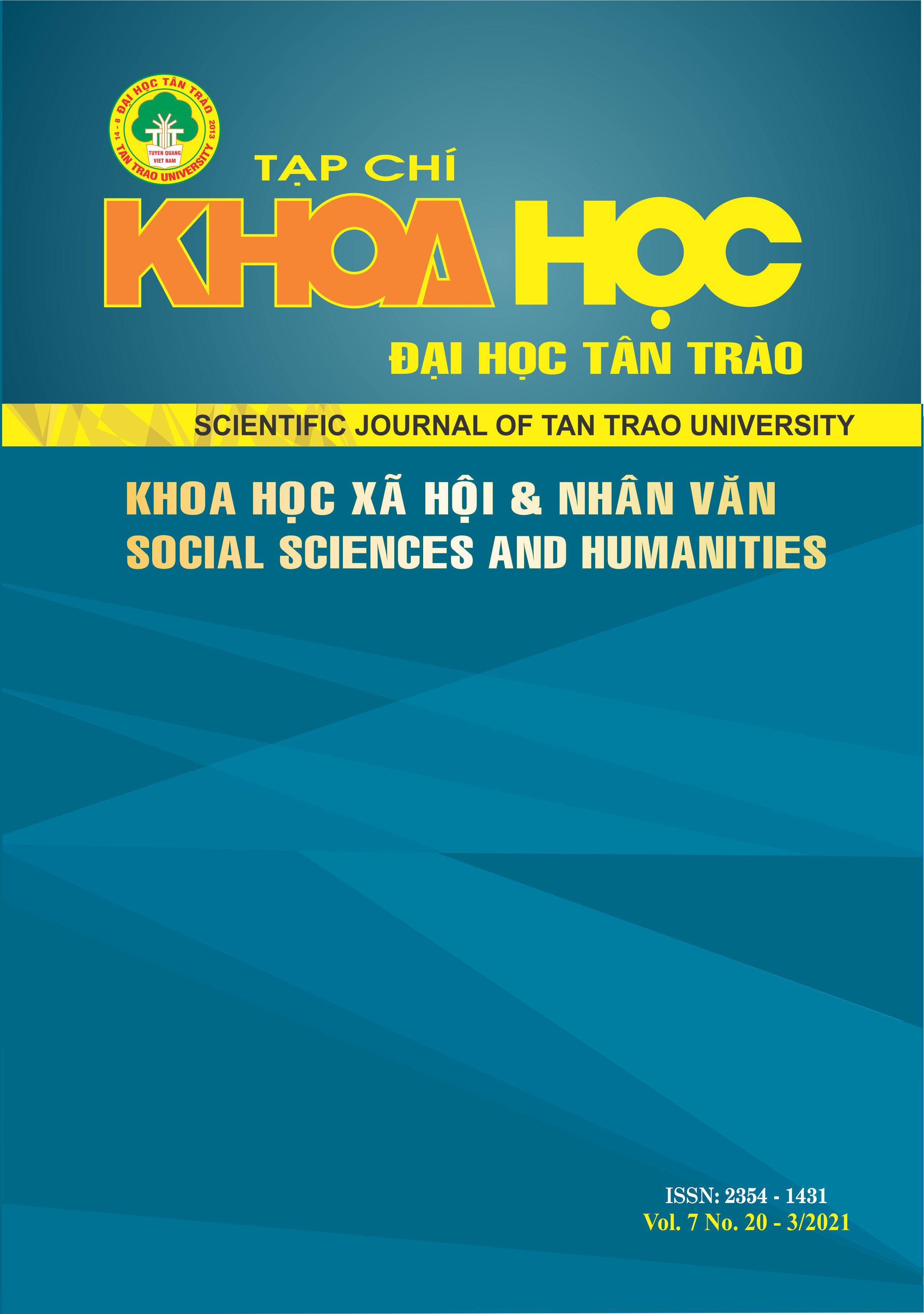REALITY AND SOLUTION FOR CULTURAL HERITAGE MANAGEMENT WITH TOURISM DEVELOPMENT IN KHANH HOA PROVINCE
DOI:
https://doi.org/10.51453/2354-1431/2021/512Keywords:
Management, Cultural heritage, tourism, Khanh Hoa.Abstract
Cultural heritage is a significant element of the traditional Vietnamese culture. The role of cultural heritage is reflected through different aspects of socio-cultural life. Besides helping to create the diversity of the cultural identity, cultural heritage contributes substantially to the socio-economic development of the country. Khanh Hoa, a province with tourism as the key industry and a diverse system of cultural heritage being rich in cultural, historical and scientific values, has enormous potential for cultural heritage enhancement associated with tourism growth. Basing on the analysis of the cultural heritage system and of the reality of the system management along with tourism development, this article presents some solutions to improving the efficiency of conserving and promoting cultural heritage in tandem with boosting the local tourism.
Downloads
References
[1] The Central Executive Committee of the 11th Vietnam Communist Party (2014). The resolution of the 9th conference on the construction and development of Vietnamese culture and people to meet the requirements of sustainable development of the country, Hanoi.
[2] Ban, N.V. (2018). Khanh Hoa Place in the past and now contribute to understanding a land, Da Nang Publishing House, 1200 pages.
[3] Ministry of Culture (2018). Sports and Tourism, Conference to protect and promote the value of Vietnam's cultural heritage for sustainable development, Hanoi.
[4] Bon, N.V (2011). Motherhood Religion in Khanh Hoa, Culture and Information Publishing House, Hanoi, 223 pages.
[5] Ha, N.T.T. (2016). Cultural Heritage Management and Tourism Development in Hoi An Ancient Town, Quang Nam Province, PhD Thesis on Cultural Management, Vietnam National Institute of Culture and Arts, 159 pages.
[6] Khanh, N.V. (2013). Researching the historical and cultural value of Khanh Hoa 350 years, National Political Publishing House, 363 pages.
[7] Many authors (2017), Management and exploitation of cultural heritages in the integration period, National University Publishing House, Ho Chi Minh City, Ho Chi Minh City, 506 pages.
[8] National Assembly of the Socialist Republic of Vietnam (2009), Law on cultural heritage supplementing and amending a number of articles of the Law on Cultural Heritage 2001, Hanoi.
[9] Sau, D.V (2004). Vietnam Festival in the development of tourism, Hanoi University of Culture, 314 pages.
[10] Thinh, N (2012). Vietnamese Cultural Heritage, Identity and Conservation Management Issues, Construction Publishing House, Hanoi, 289 pages.
[11] Sieu, H.V (2011). Cultural Heritage with Tourism Development, vietnamtourism.gov.vn.index.php/items/26992, Vietnam National Administration of Tourism.
[12] Khanh Hoa Provincial Monuments Conservation Center, ( https:// ditichkhanhhoa.org.vn/)
[13] Lu, N.P. Solutions to developing cultural heritage tourism, State management magazine.
Downloads
Published
How to Cite
Issue
Section
License

This work is licensed under a Creative Commons Attribution-ShareAlike 4.0 International License.
All articles published in SJTTU are licensed under a Creative Commons Attribution-ShareAlike 4.0 International (CC BY-SA) license. This means anyone is free to copy, transform, or redistribute articles for any lawful purpose in any medium, provided they give appropriate attribution to the original author(s) and SJTTU, link to the license, indicate if changes were made, and redistribute any derivative work under the same license.
Copyright on articles is retained by the respective author(s), without restrictions. A non-exclusive license is granted to SJTTU to publish the article and identify itself as its original publisher, along with the commercial right to include the article in a hardcopy issue for sale to libraries and individuals.
Although the conditions of the CC BY-SA license don't apply to authors (as the copyright holder of your article, you have no restrictions on your rights), by submitting to SJTTU, authors recognize the rights of readers, and must grant any third party the right to use their article to the extent provided by the license.


